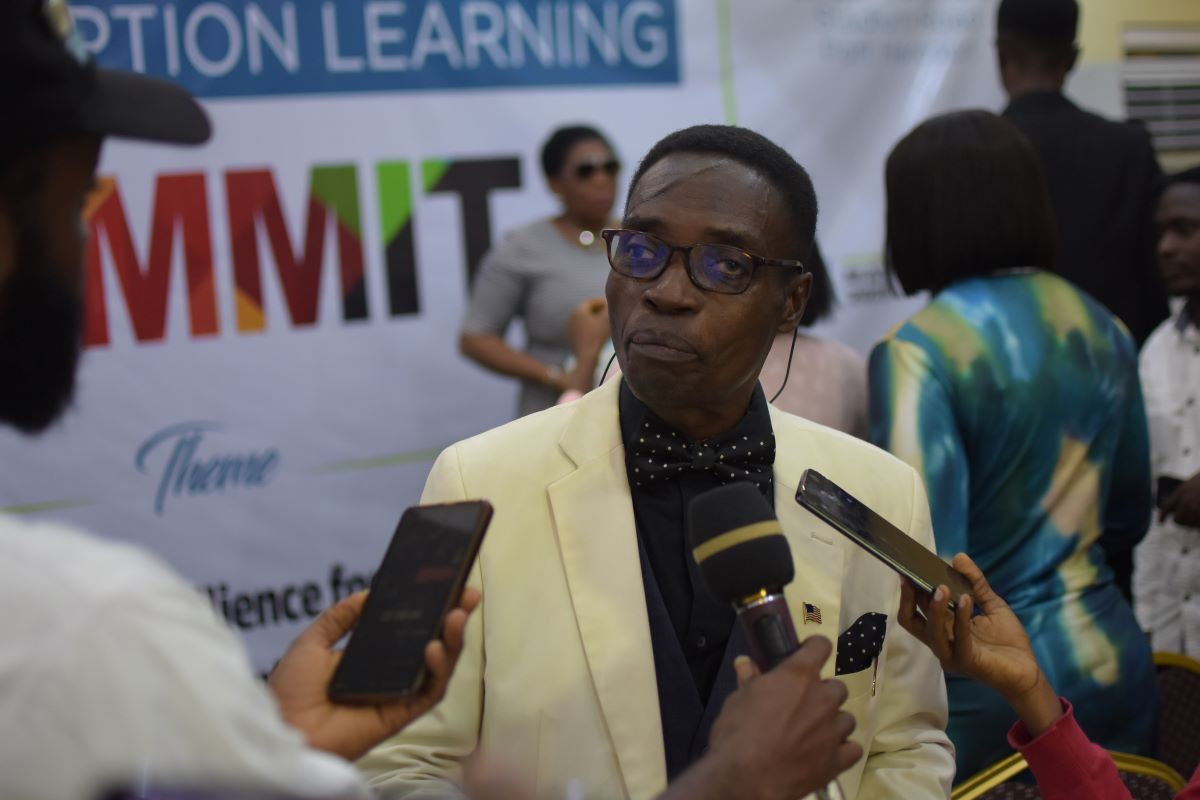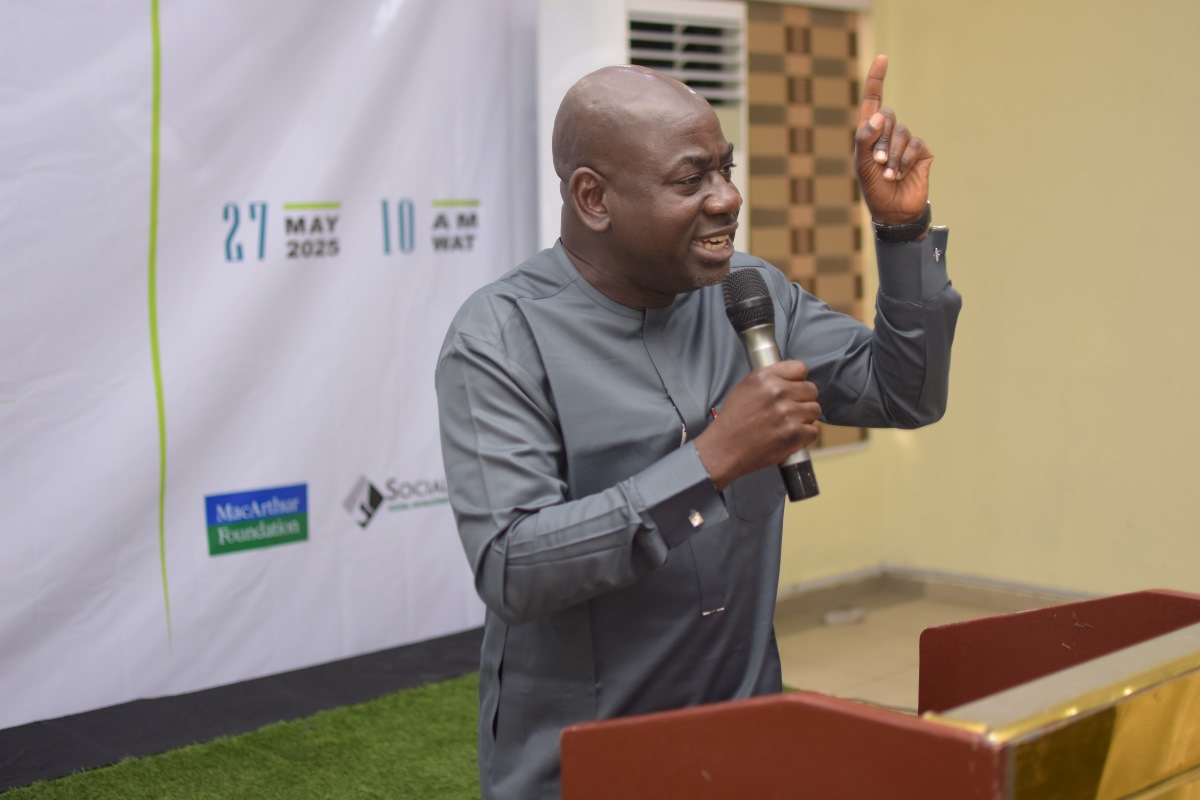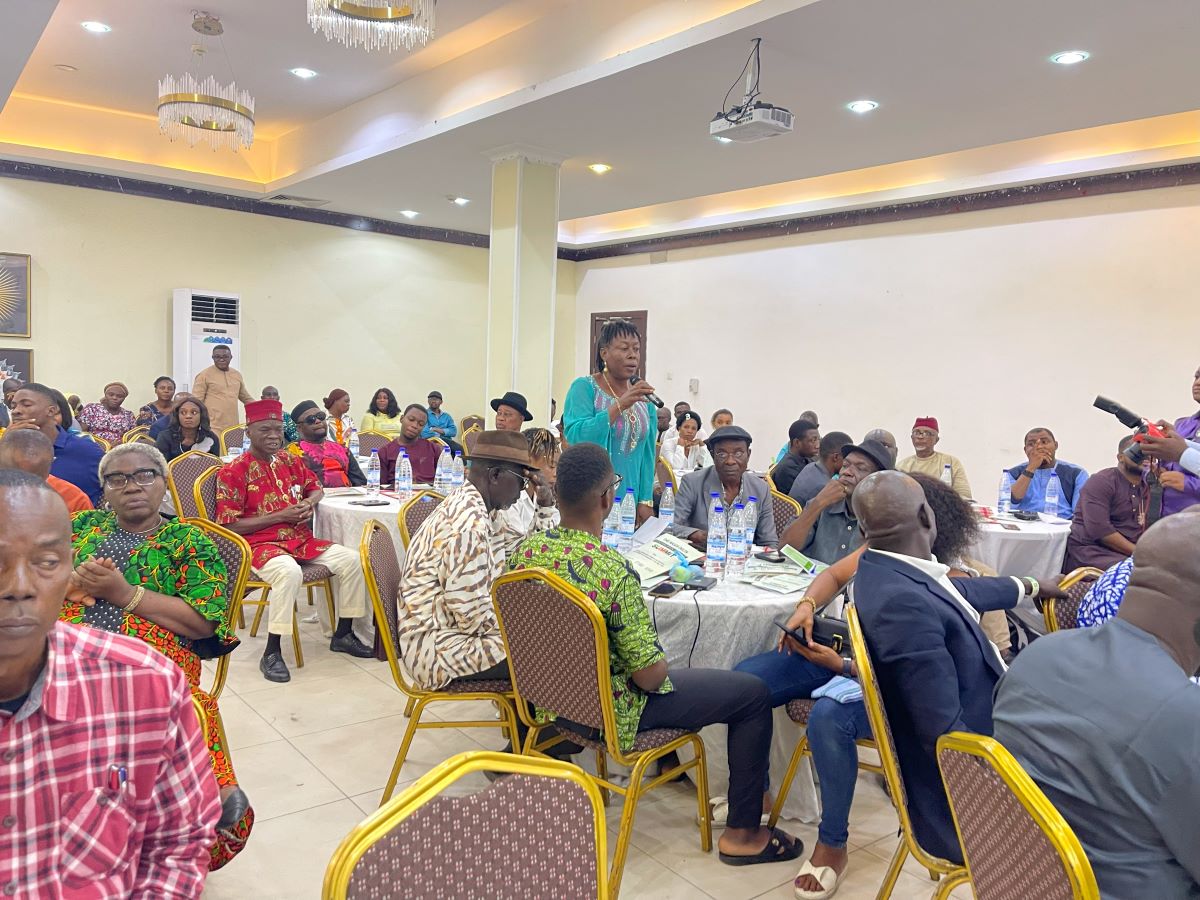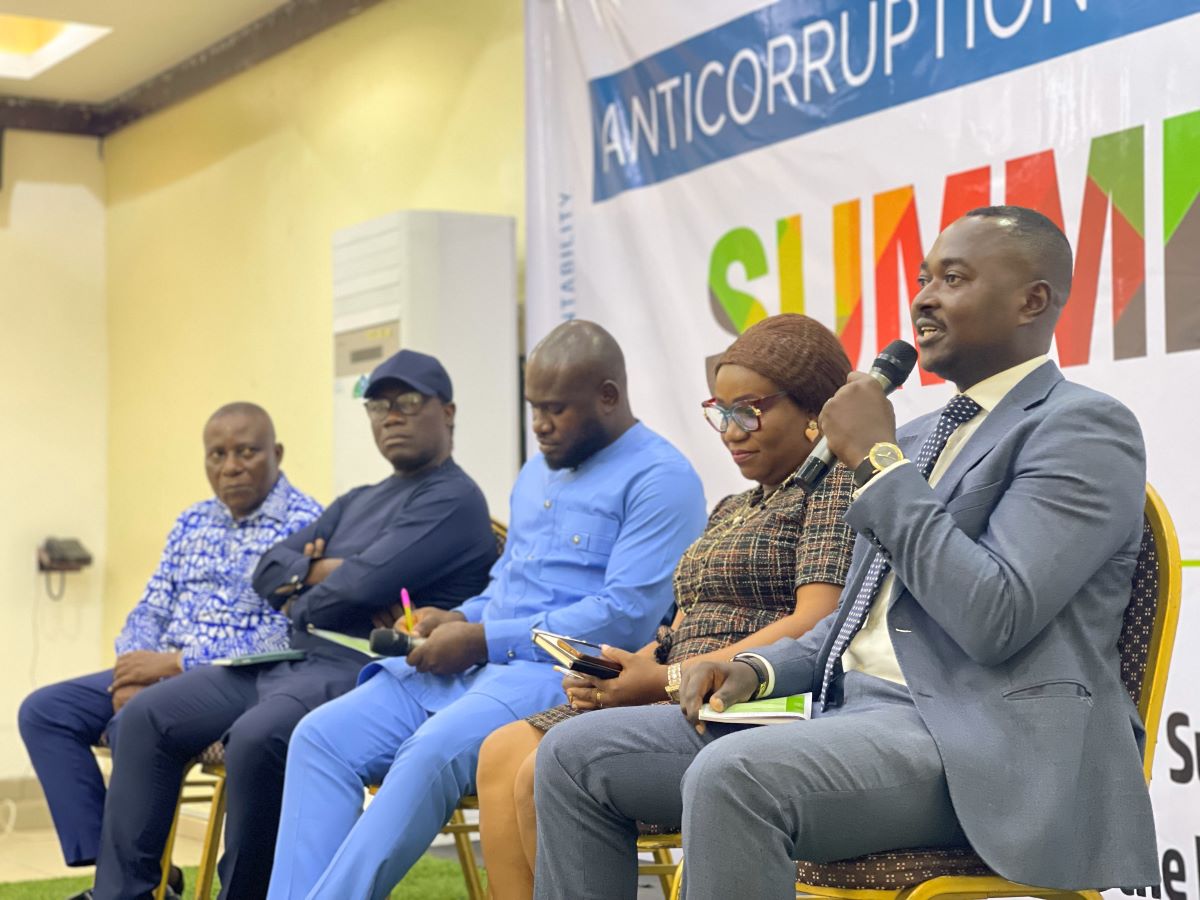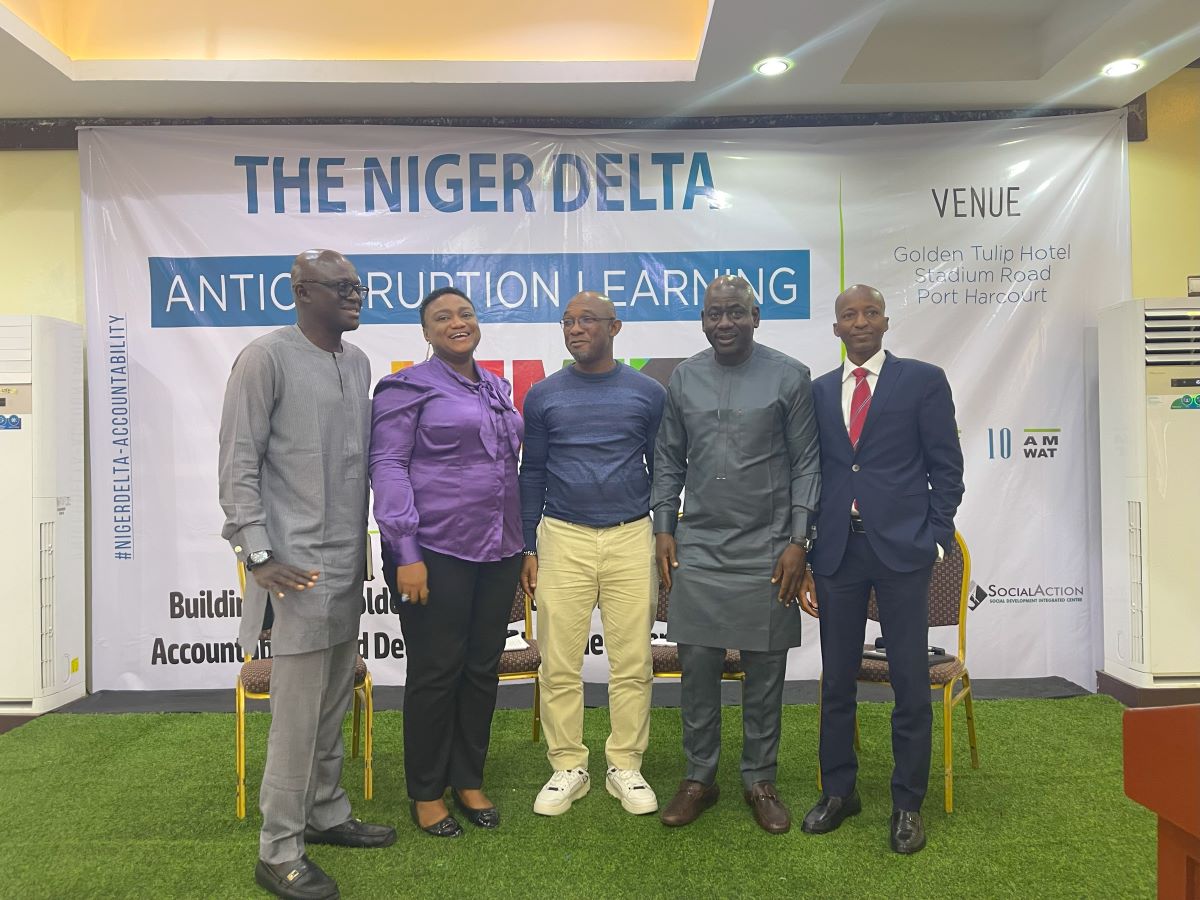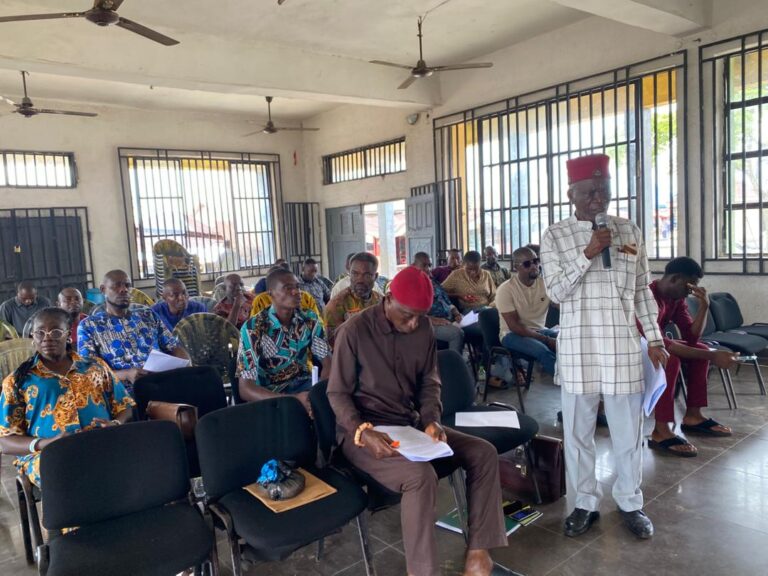Holding Power Accountable: The Niger Delta’s Call for Reform, Demand Transparency in Resource Management
Report of the Niger Delta Anti-Corruption Learning Summit
By Peace Agbo
The 2025 Niger Delta Anti-Corruption Learning Summit convened a wide range of stakeholders including civil society organizations (CSOs), anti-corruption agencies, traditional rulers, community representatives, and the media. The summit focused on addressing entrenched corruption in the oil, gas, and mining sectors of the Niger Delta, a region rich in natural resources yet plagued by environmental degradation, poverty, and underdevelopment. The forum provided a platform for examining how corruption, especially in the implementation of constituency projects and by institutions such as the Niger Delta Development Commission (NDDC), undermines development and public trust
The Summit which was themed “Building Stakeholders Resilience for Sustained Accountability and Development in the Niger Delta started with an opening address by Dr. Isaac Osuoka that paints a stark picture of the Niger Delta as a region rich in resources but devastated by pollution, poverty, and neglect, largely due to systemic corruption and misgovernance. According to him, despite generating billions from oil, the region remains plagued by unemployment, poor infrastructure, and inadequate public services. Constituency projects meant to alleviate these challenges are often manipulated for political gain, with funds diverted or projects left uncompleted hence the need for monitoring and evaluation which birthed the Citizens report.
He further stated that The Citizens’ Report on Constituency Projects by Social Action reveals widespread abuse of public funds, confirming that many such initiatives serve as vehicles for fraud and patronage. Corruption is entrenched not only at the state and federal levels but also in local government, where political godfathers dominate governance through captured institutions and manipulated elections, undermining democracy.
The address underscores that Nigeria’s democracy is threatened by this lack of accountability, where budgets are mismanaged and democratic gains eroded. Social Action’s budget monitoring since 2008 has consistently shown funds being allocated without implementation, with wasteful expenditures taking priority over public welfare. To counter this, Dr. Isaac calls for resilient public institutions that are transparent, independent, and immune to elite capture. However, institutions alone are not enough as citizen action is essential. Citizens must monitor local projects, demand transparency, use legal tools like the Freedom of Information Act, and reject the glorification of corrupt wealth. Civil society, the press, and religious leaders must amplify these demands. For him, a key theme is the need for electoral justice. Without free and fair elections, accountability remains elusive. The Rivers State crisis is cited as a national warning, where political godfatherism and institutional breakdown have nullified democratic mandates. In conclusion, the Executive Director of Social Action, stated that the Niger Delta Summit is a cry for collective action against corruption, urging every stakeholder to become an activist for accountability. This summit must not be symbolic, it must ignite bold, sustained reform. The message is clear: “Enough is enough. The time for change is now.”
A major highlight of the event was the unveiling of the Citizens’ Report on Constituency Projects by Mr. Botti Isaac the Programs Manager of Social Action. The 42-page report, developed by Social Action, documents abandoned and incomplete constituency projects across the South-South states. Mr. Isaac emphasized the vital role community members must play in tracking, reporting, and monitoring development projects. The report is a call to action for greater citizen involvement in ensuring transparency and accountability at the grassroots level.
Furthermore, the Economic and Financial Crimes Commission (EFCC) and the Independent Corrupt Practices and Other Related Offences Commission (ICPC) delivered goodwill messages, expressing commitment to the anti-corruption cause as government agencies. Speaking on behalf of the EFCC, Mr. Elijah Bakam described corruption as a societal cancer that must be fought by both government and citizens. He criticized the low level of citizen participation in the anti-corruption struggle and warned of a growing culture where unethical behaviors, such as cybercrime, are normalized within communities. Mrs. Ekene Usiere, representing the ICPC, echoed this urgency. She described corruption as a dangerous virus and emphasized that projects allocated to communities must be seen as collective responsibilities. She urged citizens to shift their perspectives and take ownership of the development process.
Taking up the centre stage was Dr. Etim Frank, a political scientist and public administrator from the University of Uyo, who presented a paper titled “Sustaining Collaboration for Inclusive Development and Public Accountability in the Niger Delta.” He highlighted the historical and structural roots of corruption in the region and questioned what legacy will remain once oil resources are depleted. He called for urgent action to safeguard the future, arguing that legislative oversight in the Niger Delta is weak, with Houses of Assembly often failing to check executive excesses. He emphasized that transparency and accountability must be embedded in governance, and citizens must be at the forefront of this demand.
Next was the first panel session, moderated by Barrister Okorite Yobo, which focused on the role of the Beneficial Ownership (BO) Register in promoting transparency within the extractive industries. Panelists included Dr. Muhammad Abdullah from the Corporate Affairs Commission (CAC), Dr. Kelechi Justine of a civil society organization, and Dr. Tijah Bolton Akpan of Policy Alert.
The CAC representative described the BO Register (available at www.bor.cac.gov.ng) as a revolutionary tool that allows citizens to uncover the true owners of companies operating in the region. This, he said, removes the “corporate veil” and empowers citizens to hold individuals accountable for environmental and economic violations. Participants welcomed the initiative but voiced concern over the limited visibility and accessibility of oil companies, which often operate from distant headquarters while their operations impact local communities.
Furthermore, The second panel featured Comrade Celestine Akpobari, Comrade Ken Henshaw (Executive Director of We The People), Mrs. Stella Ikeokwu, and Mr. Elijah Bakam of the EFCC. The discussion explored persistent challenges and pathways for sustaining anti-corruption efforts.
Mr. Bakam provided an update on EFCC interventions and prosecutions but acknowledged institutional limitations, especially the judiciary’s tendency to issue injunctions that stall investigations. This, he argued, undermines enforcement efforts. Comrade Ken Henshaw emphasized the importance of grassroots civic engagement, community monitoring, and public enlightenment. He argued that a vigilant and informed citizenry can play a crucial role in holding public officials accountable. All panelists agreed that a multifaceted approach including legal reforms, institutional collaboration, grassroots engagement, and sustained advocacy is essential for tackling corruption in the Niger Delta.
In conclusion, the panelists were unanimous in their view that addressing corruption in the Niger Delta requires a multi-faceted approach, one that includes robust legal reform, enhanced institutional collaboration, grassroots civic engagement, and unwavering public advocacy. The session concluded with a call to action for all stakeholders to deepen partnerships and reinforce mechanisms that promote transparency, accountability, and good governance in the region.
The Communique was put together by Mr. Kentebe Ebiridor and Mr. Alex Otutu and after an insightful conversation, these were the observations made:
- That the rampant Corruption which has led to mismanagement of public resources continues to be a significant barrier to development in the Niger Delta.
- The Impact on Communities in the Niger Delta cannot be over emphasized as Corruption in the extractive industry worsens poverty and disrupts social and economic development in host communities.
- Also there has been huge Neglect by the government and decadence in the system has strengthen corruption. The region suffers from widespread infrastructural decay, environmental pollution, and social crisis, despite its economic importance.
- The Government Mismanagement of funds. Sub-national governments are often implicated in financial misappropriation, fostering a culture of impunity.
Recommendations
- The summit issued the following recommendations to combat corruption and promote good governance:
- Enhanced Transparency is an urgent call as this will Promote contract and beneficial ownership transparency in oil, gas, and mining operations.
- Strengthen Oversight by Empowering anti-corruption agencies to investigate and prosecute corruption effectively.
- Public Awareness and Participation is constantly needed. We must continue to Educate and encourage citizens to reject corruption and demand accountability from officials.
- Support for Civil Society is also key. We must seek to facilitate active civil society engagement in transparency advocacy and anti-corruption monitoring.
- Legal Enforcement cannot be neglected. There is need to ensure strict enforcement of laws, including the application of sanctions against offenders.
- Freedom of Information (FOI) Act should be another channel to explore. We must promote the use of the FOI Act to access public information and challenge secrecy in governance.
- Community Inclusion is a must as it is a collective responsibility. We should Involve grassroots communities and artisanal miners in future dialogues and decision-making processes.
The Niger Delta Anti-Corruption Learning Summit 2025 reaffirmed the urgent need for collaborative action to confront systemic corruption in the region. By strengthening transparency mechanisms, promoting civic participation, and ensuring legal accountability, stakeholders can begin to reverse the region’s marginalization and work toward sustainable and inclusive development.


